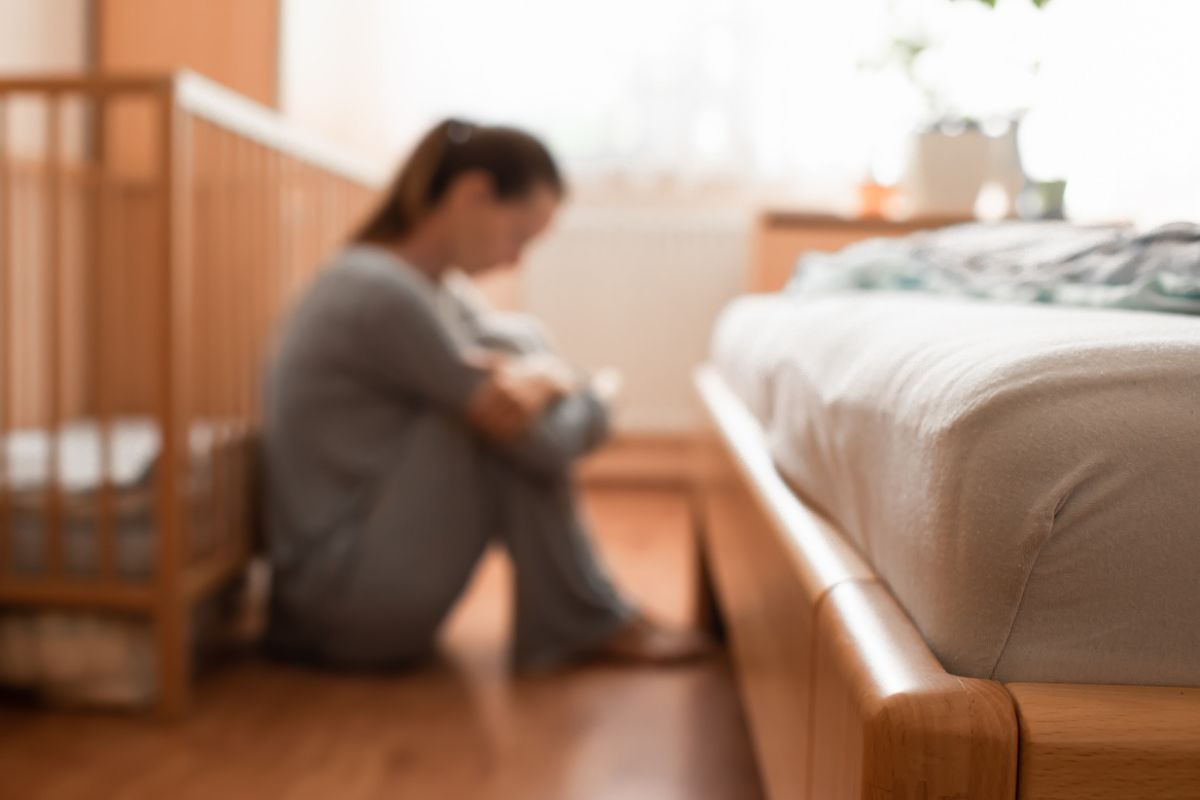Ariana Sutton took her own life nine days after giving birth to twins. The Massachusetts mom had a history of postpartum depression (PPD).
“I never dreamed this could happen. It came on so rapidly, and so suddenly,” her husband, Tyler, told the Today Show.
Pregnancy Outcomes After Second-Generation Antipsychotic Exposure
Valproic Acid and Women of Reproductive Potential
Ariana experienced PPD after the birth of her first child in 2018, her husband explained. Her symptoms were critical, leading to two hospitalizations.
In her previous bout of PPD, he said she had described it as feeling like a “little person had taken up residence” in her head, drowning out all positive feelings. Her symptoms took several weeks to develop.
Focus on Women’s Mental Health
Sutton’s husband said her doctors were aware of her history and they had a plan in place. But as soon as her twins were born prematurely in May, she began talking about how she “wanted them back in her belly.” He said that despite reassurance from her medical team, no one could get through to her.
Sutton left a suicide note making it clear that she was depressed. She said she didn’t want to be a burden. “She just needed some help. I wish she had just waited for me to get home so I could have helped her,” her husband said.
Beyond the Blues
“The postpartum blues is actually a normal condition; about 80 percent of women will suffer from some transient mild sadness or low mood,” stated Marlene P. Freeman, MD, a professor of psychiatry at Harvard Medical School and Editor in Chief for The Journal of Clinical Psychiatry in a recent 5 Minute Pearls video feature.
Freeman added in the Pearls clinical update that postpartum depression is entirely different than simple “baby blues.”
“… we always want to watch when women are noticing mood changes to make sure it’s not becoming a major depressive episode, which we also call postpartum depression,” she added.
Freeman also noted that in postpartum, anxiety is extremely prevalent and sometimes include obsessions or compulsions, or even meet the full diagnosis of obsessive compulsive disorder (OCD). Sutton’s husband recalled her becoming “borderline obsessive” about the safety of their water supply, going so far as to call the water department several times to discuss it.
In extreme instances, women can experience postpartum psychosis. It is characterized by severe agitation, confusion, feelings of hopelessness and shame, insomnia, paranoia, delusions, hallucinations, hyperactivity, rapid speech, or mania. Though psychosis only develops about one percent of the time, it requires immediate medical attention. There is a risk of suicide and infanticide with this severe disorder.
Reproductive Psychiatry
The nine months of pregnancy, plus the following few months after giving birth, can be an emotionally vulnerable time in a woman’s life, explained Rubiahna Vaughn, MD, the author of a recent PPD case report published in The Primary Care Companion For CNS Disorders.
“Many women who go on to develop PPD have no previous history of mental disorders before getting pregnant or giving birth,” she said in the article.
Vaughn is a reproductive psychiatrist, an emerging speciality that focuses on women who are pregnant and up to four months postpartum with psychiatric disorders like major depressive disorder, OCD, bipolar disorder, schizophrenia, and various anxiety disorders.
Vaughn is the leader of a reproductive psychiatry program at Montefiore Medical Center in the Bronx, New York. She said her team works in partnership with the department of psychiatry and the department of obstetrics and gynecology to treat women and train psychiatry residents.
“Other physicians are reaching out to us all the time with referrals and also curbside questions and e-consultations,” she told Psychiatrist.com earlier this year.
The Journal of Clinical Psychiatry has a Focus on Women’s Mental Health section, edited by Freeman. Freeman is also the associate director of the Center for Women’s Mental Health at Massachusetts General Hospital.
Use of Medication
According to Sutton’s husband, it took her two months to recover from PPD after the birth of her first child. Medication helped. However, she stopped taking antidepressants after she became pregnant again because she was concerned it might harm the fetuses.
This is a common misconception even among medical experts, Vaughn said.
“Many doctors, even if they’re taking care of these patients, might refuse to provide psychiatric medications to women who are pregnant or breastfeeding because they mistakenly think they are unsafe for the mother or the fetus or the baby,” she said.
In Pearls, Freeman concurred that sometimes severe PPD requires aggressive treatment, saying “…it can really take away from the experience of a woman having a new baby.”
According to Freeman, many medications for depression and other psychiatric disorders have safety data that are reassuring. The risk of untreated disorders must be considered when weighing the risks and benefits of medication use during pregnancy.
In Sutton’s case, the outcome was tragic. A recent JAMA Psychiatry study reported a tripling of maternal deaths due to suicide in the past decade. Suicide is one of the leading causes of deaths among new mothers, the study found.
Sutton left a suicide note making it clear she was depressed. Her husband told Today that he is sharing their story in hopes that the medical community will start paying more attention to the potential seriousness of PPD.
Important Resources
For more information please visit the website, Postpartum Support International (PSI). Options are available for urgent maternal mental health crises. PSI can help link patients with resources, and information about postpartum psychiatric disorders is available on the website. In addition, there is a National Maternal Mental Health Hotline 1-833-852-6262, and PSI’s Helpline at 1-800-944-4773. There is also a Suicide and Crisis Lifeline at 988.



